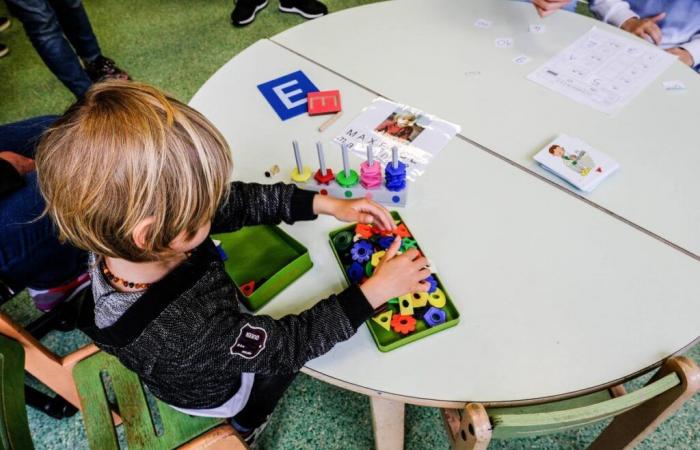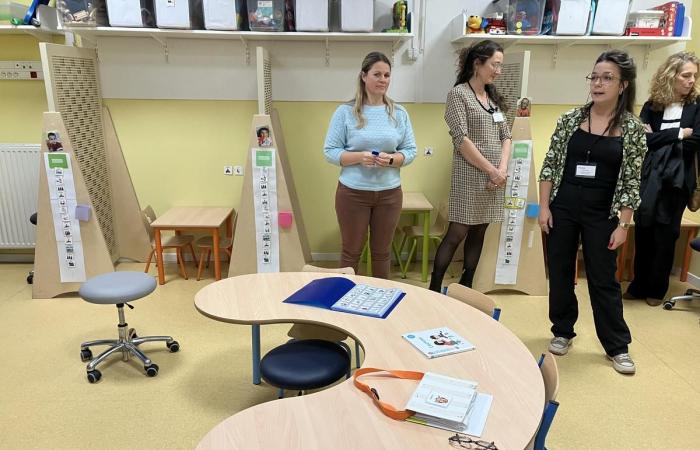These classes are reserved for children aged 3 to 6, with severe autism spectrum disorder, who cannot yet integrate into regular classes. They may have motor, speech or behavioral difficulties and need appropriate support. To accommodate these children, the Regional Health Agency (ARS), through its autism plan, in conjunction with National Education, is opening Autism Kindergarten Teaching Units (UEMA). In Gironde, a class was inaugurated at the Parc school, in Mérignac, on Tuesday November 26. This is the fifth unit created in the department.
Autism: what is Asperger's syndrome?
After Mark Zuckerberg, Vincent Van Gogh, Marie Curie, Andy Warhol, Wolfgang Amadeus Mozart and Albert Einstein, Lionel Messi, Eminem and Thomas Edison, the famous entrepreneur Elon Musk joins the list of celebrities affected by a particular form of autism: Asperger's.
This unit opened a year ago, with a capacity of seven places, welcomes five children (a sixth is due to arrive soon), who are accompanied by a forensic team from the Association for Development, Integration and support for disabled people (ADIAPH), composed of a psychomotor therapist, a medico-psychological assistant, a specialized educator, a speech therapist, a specialized teacher and a nurse.
“Fewer crises”
If the children are among themselves in class, they can mix with other students in the playground during breaks, in the canteen, or during exchange activities. “At the beginning, we had to get our bearings and adapt. Today, we see a virtuous circle, between children with an autistic disorder who progress through contact with other children, and the latter who change their outlook on disability,” assures Aurélie Le Roy, director of the nursery school.
N.L.
Partitions allow children to work individually on specific workshops and to alternate with inclusive activities.
The goal is to bring these students to an ordinary curriculum from primary school and to prevent them from spending their education in a specialized structure. This is what Marie-Ange and Thomas, parents of Gabriel, 3 years old, at UEMA at the Parc school, want. “We saw the evolution of his behavior. Thanks to a system of pictograms put in place by the forensic team, we communicate better with him. Professionals also come to your home to advise us and adapt the environment for them. He has fewer seizures and he is progressing in his motor skills, even though the doctors said he would never walk,” they explain.
Waiting list
According to ARS data, out of 77 students leaving a UEMA in New Aquitaine in June 2024, 18 subsequently joined a regular class in CP and 19 a localized Unit for educational inclusion (Ulis). Others integrate medical-educational institutes (IME) or self-regulation systems (DAR). “For almost two thirds (64%) of children leaving UEMA, schooling continues in inclusion (ordinary class or ULIS), a rate significantly higher than in 2022-2023, when it stood at 54%” , details the ARS.
For their child to join a UEMA, parents must go through a Departmental Center for Disabled People (MDPH). But demand is high, with few places. In June 2024, 32 children were waiting for a place in UEMA in Gironde and 120 in New Aquitaine.
In the department, there are five UEMAs, in Bordeaux, Castelnau-de-Médoc, Ambarès and Mérignac. No new openings are planned in Gironde before 2027.







